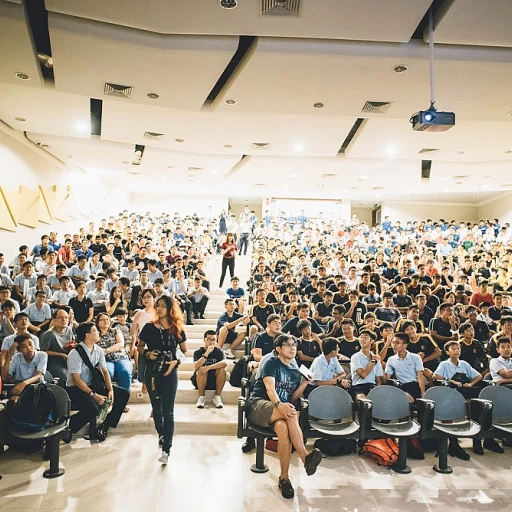
Understanding the risks of remote interviews
Remote Interviews: A New Landscape for Data Security
Remote work has transformed the way HR professionals conduct job interviews, but it also introduces unique risks to data security and privacy. With interviews happening outside the traditional office environment, sensitive company data and personal information are often exchanged over digital channels. This shift requires employers to rethink how they monitor and protect employee data during the hiring process.
Key Risks in Remote Interview Settings
- Data leaks: Sharing sensitive data over unsecured networks or personal devices can lead to unintentional data leaks.
- Unauthorized access: Remote interviews may expose company data to unauthorized individuals if proper access controls are not in place.
- Monitoring challenges: Without physical oversight, tracking and monitoring employee actions in real time becomes more complex, increasing the risk of data loss or breaches.
- Device vulnerabilities: Using personal devices for interviews can compromise data protection, as these devices may lack robust security tools or monitoring software.
Why Data Protection Matters in Remote Hiring
Protecting sensitive data during remote interviews is not just about compliance—it’s about maintaining trust with candidates and safeguarding company data. Data breaches or leaks can damage an employer’s reputation and lead to significant financial and legal consequences. Prevention strategies, such as loss prevention tools and secure access protocols, are essential for ensuring data security throughout the remote hiring process.
Building a Foundation for Secure Remote Interviews
Employers must prioritize security and privacy from the outset. This includes implementing employee monitoring solutions that respect privacy while enabling effective tracking of data access and usage. By understanding the risks and adopting best practices, HR teams can create a safer environment for both remote employees and candidates. For more insights on demonstrating management skills in HR job interviews, check out this guide on how to show you are management material in HR job interviews.
Best practices for secure remote interview processes
Securing Remote Interview Platforms and Communication
Choosing the right tools for remote interviews is the first step in protecting sensitive company data and candidate information. Employers should select video conferencing and communication platforms that offer end-to-end encryption, multi-factor authentication, and strong access controls. This helps prevent unauthorized access and reduces the risk of data leaks during the interview process.Limiting Access to Sensitive Data
Not every employee involved in the interview process needs access to all candidate or company data. Implementing role-based access ensures that only authorized personnel can view or handle sensitive information. This approach minimizes the risk of data loss or leaks, especially when remote employees use personal devices for work-related tasks.- Restrict access to interview recordings and assessment results
- Use secure file-sharing tools for exchanging documents
- Regularly review and update permissions as roles change
Monitoring and Prevention Measures
Employers should utilize monitoring software that tracks activity in real time without infringing on privacy. Time tracking and employee monitoring tools can help identify unusual behavior or unauthorized data transfers. However, it is crucial to balance monitoring with respect for employee privacy and legal requirements.Protecting Data on Personal and Company Devices
Remote work often involves using both personal and company devices. To prevent data breaches, companies should require security protocols such as:- Mandatory use of virtual private networks (VPNs)
- Regular software updates and security patches
- Data loss prevention (DLP) tools to monitor and block potential leaks
Clear Communication and Policy Enforcement
Establishing clear guidelines for remote interview processes is essential. Employees must understand the importance of data protection and the consequences of mishandling sensitive data. Regular training and communication reinforce these policies and support a culture of security awareness. For a deeper understanding of direct hire processes and their impact on data security in HR job interviews, you can read more in this article: understanding what direct hire means in HR job interviews.Tools and technologies for employee tracking
Choosing the Right Monitoring Solutions for Remote Work
With the shift to remote work, employers face new challenges in maintaining data security and productivity. Selecting the right tools for employee monitoring and tracking is essential for protecting sensitive company data and preventing data leaks. The right monitoring software can help employers track employee activity in real time, monitor access to sensitive data, and ensure compliance with data protection policies.
- Employee Monitoring Software: These tools allow employers to monitor employee activity, track time spent on tasks, and detect unusual behavior that could indicate a potential data breach. Features often include real time alerts, screen capture, and application usage tracking.
- Data Loss Prevention (DLP) Tools: DLP solutions help prevent unauthorized sharing or transfer of sensitive data. They monitor data movement across devices and networks, flagging or blocking risky actions to reduce the risk of data leaks.
- Access Management Systems: These tools control who can access specific company data and applications. By limiting access to only those who need it, employers can reduce the risk of data breaches and ensure that employee data remains secure.
- Endpoint Security: Protecting personal and company devices used by remote employees is critical. Endpoint security solutions provide protection against malware, unauthorized access, and other threats that could compromise sensitive data.
- Time Tracking Tools: In addition to monitoring productivity, time tracking tools can help identify unusual patterns that may signal a security issue or potential data leak.
When implementing employee monitoring and tracking solutions, it is important to balance security needs with employee privacy. Transparent communication about what is being monitored and why helps build trust and ensures compliance with legal and ethical standards. For more insights on how software sales recruiters approach HR job interviews and the role of monitoring tools in the hiring process, visit how software sales recruiters approach HR job interviews.
Ultimately, the right combination of monitoring software, data loss prevention tools, and access controls can help employers protect sensitive company data, prevent data breaches, and support a secure remote work environment for all employees.
Preventing data leaks during candidate assessments
Protecting Sensitive Data During Candidate Assessments
When conducting remote interviews and assessments, HR professionals must be vigilant about data security. The risk of data leaks increases when sensitive company data and personal information are shared across digital platforms. Employers need to ensure that only authorized employees have access to candidate data, and that this access is monitored in real time.- Limit access: Restrict employee access to sensitive data based on job roles. Only those directly involved in the assessment process should handle candidate information.
- Use secure platforms: Choose assessment tools and monitoring software that offer robust data protection features, such as end-to-end encryption and multi-factor authentication.
- Monitor devices: If remote employees use personal devices for assessments, implement monitoring solutions that track data flow and prevent unauthorized downloads or sharing.
- Data loss prevention: Deploy data loss prevention (DLP) tools to detect and block potential data leaks during remote work. These tools can alert HR teams to unusual activity or attempts to transfer sensitive data outside company systems.
- Regular audits: Conduct regular audits of employee tracking and time tracking logs to identify any irregularities or potential breaches in data security.
Balancing Productivity and Privacy
Employers must strike a balance between monitoring productivity and respecting employee privacy. Overly intrusive monitoring can damage trust, while insufficient oversight increases the risk of data breaches. Transparent communication about monitoring practices and the use of monitoring software is essential for maintaining a positive remote work environment.- Inform employees about what data is being collected and how it will be used.
- Ensure that monitoring tools are configured to protect personal data and only track work-related activities.
- Establish clear policies for data protection and leak prevention, and provide training to all remote employees on these protocols.
Legal and ethical considerations in monitoring
Balancing Employee Privacy with Security Requirements
Remote work has made employee monitoring and data protection more complex. Employers need to ensure data security and prevent data leaks, but they must also respect employee privacy. Striking this balance is essential for maintaining trust and legal compliance.
Key Legal Considerations for Monitoring Remote Employees
- Transparency: Employers should clearly inform employees about any monitoring software or tracking tools in use. This includes explaining what data is collected, how it is used, and who has access.
- Consent: In many regions, obtaining explicit consent from employees before monitoring is a legal requirement. This applies to time tracking, real time productivity monitoring, and access to personal devices.
- Data Minimization: Only collect data necessary for security and productivity purposes. Avoid monitoring personal activities or accessing sensitive personal data unrelated to work.
- Data Protection: Implement robust data protection measures to prevent unauthorized access, data loss, or data breaches. This includes secure storage, encryption, and strict access controls for employee data.
- Compliance: Stay updated with local and international data protection laws, such as GDPR or CCPA. Non-compliance can result in significant penalties and reputational damage.
Ethical Guidelines for Remote Employee Monitoring
Beyond legal requirements, ethical considerations play a crucial role in employee monitoring. Employers should foster a culture of trust and respect by:
- Using monitoring tools only for legitimate business purposes, such as data loss prevention or leak prevention.
- Limiting monitoring to work-related activities and company data, avoiding intrusion into employees’ personal lives.
- Regularly reviewing monitoring practices to ensure they remain fair, necessary, and proportionate.
Best Practices for Protecting Sensitive Data
Effective prevention of data leaks and breaches requires a combination of technology and policy. Employers should:
- Deploy monitoring software that supports data loss prevention and real time alerts for suspicious activities.
- Restrict access to sensitive data based on job roles and responsibilities.
- Encourage the use of secure, company-approved devices for remote work to reduce the risk of data leaks from personal devices.
- Provide regular training to HR teams and remote employees on data security, privacy, and the proper use of monitoring tools.
By integrating these legal and ethical principles into remote employee monitoring, companies can protect both their data and their employees’ rights, ensuring a secure and respectful remote work environment.
Training HR teams for remote security awareness
Building a Security-First Mindset in HR Teams
Remote work has changed how HR professionals approach data protection and employee monitoring. Training HR teams to recognize and prevent data breaches is now a core responsibility. The right knowledge and habits can make a significant difference in keeping sensitive employee data and company data secure.- Regular Security Awareness Sessions: Schedule ongoing training to keep HR staff updated on the latest data security threats, leak prevention strategies, and the safe use of monitoring software. Use real-life examples of data leaks and breaches to illustrate risks.
- Understanding Tools and Access: Ensure HR teams know how to use employee monitoring tools and time tracking software responsibly. Training should cover how to monitor productivity and employee tracking without overstepping privacy boundaries.
- Device and Data Handling Protocols: Teach best practices for handling sensitive data on personal devices and company devices. Emphasize the importance of secure access, data loss prevention, and the dangers of sharing sensitive files over unsecured networks.
- Incident Response Drills: Run simulations of data breach scenarios so HR staff can practice real-time responses. This helps reinforce procedures for data protection and loss prevention, ensuring everyone knows their role if a leak occurs.
- Legal and Ethical Guidance: Include training on the legal and ethical aspects of employee monitoring and data tracking. HR teams must understand the boundaries of privacy and the regulations that protect employee data.













